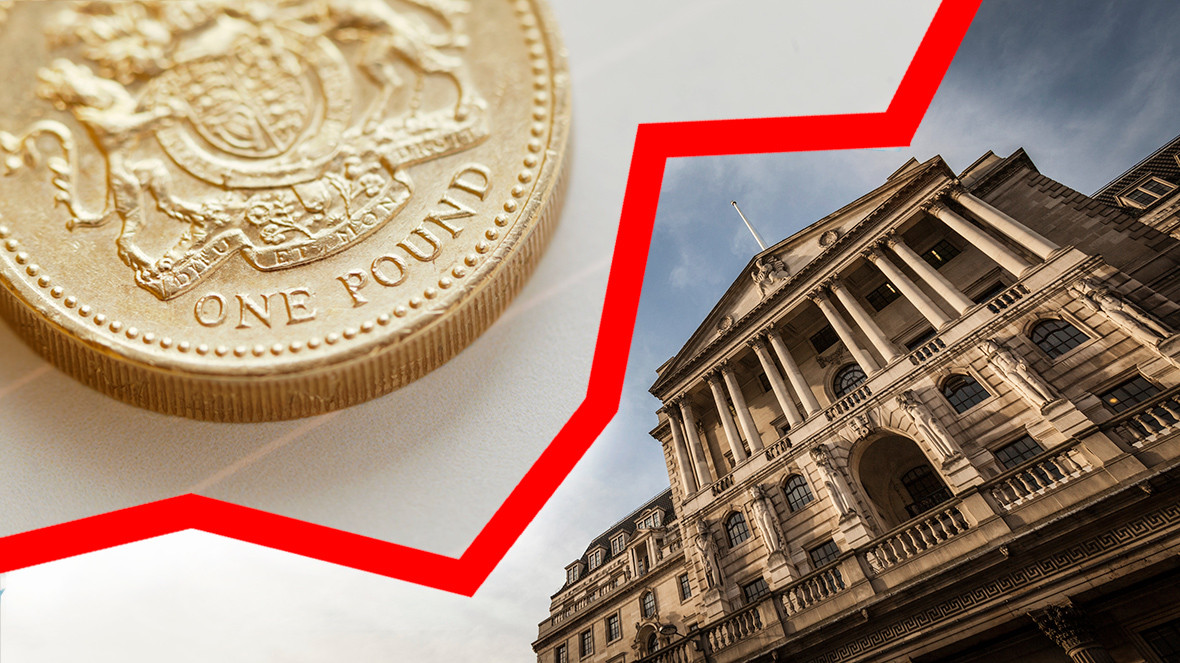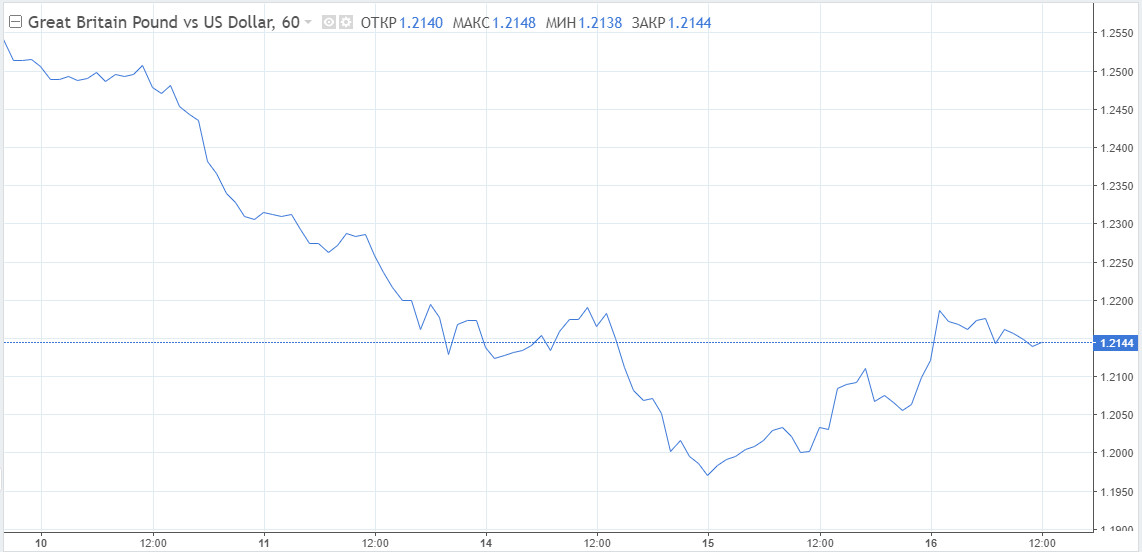
The Federal Reserve has increased the interest rate by 75 basis points instead of 50. Now, market players are focused on the Bank of England. The UK regulator has no choice but to hike the rate by more than 25 bps, economists say.
The UK is forced to adjust its monetary policy amid rising domestic inflation, an economic slowdown, and a rate hike in the US.
As dollar prices rise rapidly in global markets and push inflation up, the UK central bank will have to follow the Fed to protect the pound sterling, experts say. Extraordinary rate moves in the US can influence not only the country's monetary conditions, but also the pound sterling.
In May, the Bank of England decided to act less aggressively than the Fed. As a result, GBP tumbled. Now, the UK regulator must be more decisive. A 50 basis point hike is now expected, and the BoE could even consider 75 or even 100 bps moves.
The pound could face a further broad drubbing unless the BoE tightens its policy more aggressively, John Hardy, head of FX strategy at Saxo Bank said. The pace and quantity of rate hikes in the US relative to the UK influences the yield paid on US and UK sovereign debt and other financial assets.
If rates rise faster in the US relative to the UK, it will create capital outflows from Britain, drawing demand to USD at the expense of GBP.
Over the past several trading days, GBP/USD has swung downwards, with the pair testing 1.2000. Since the beginning of 2022, the pound sterling has lost 11% against the US dollar at a time of surging global commodity prices. This means UK businesses and consumers are paying an 11% premium on already elevated prices for fuel commodity, goods and international services, raising inflation further above the Bank of England's 2.0% target.
"Sterling weakness is adding to the dilemma facing the Bank of England as it attempts to fight rising UK inflation without hurting Britain's economy too much in the process," Robert Howard, a Reuters market analyst noted. However, this is not a problem exclusive to the BoE.
What will BoE do?
According to Goldman Sachs, the regulator could pause its monetary tightening cycle in the second half of the year to avoid triggering an even greater economic slump. However, as the pound sterling tumbles, the Bank of England might not have the luxury of pausing the cycle.
"A pause in the hiking cycle remains a risk if the outlook deteriorates more than in our baseline projection, but further increases in long-term inflation expectations or a further sharp GBP depreciation could lead to a faster hiking pace in coming months," Steffan Ball, an economist at Goldman Sachs commented.
It is certain that the BoE will hike interest rates in June. However, the regulator's future plans will largely depend on the pound sterling's performance. If GBP/USD continues its downtrend and breaks below the key level of 1.2000, the Bank of England will have to cancel the monetary tightening pause in order to slow down inflation and prevent GBP from slumping further.

Scotiabank's economists see the pound fall below 1.2000 in the upcoming weeks.
The Bank of England's policy is less hawkish than expected by the market, which could result in more losses for the pair amid the Fed's steeper rate hike. Only a steady improvement of market sentiment and a weaker USD would allow GBP to consolidate above 1.2000.
After the Fed increased interest rates by 75 bps to 1.5-1.75% for the first time since November 1994, the US dollar unexpectedly dropped.
Jerome Powell, chairman of the Federal Reserve, stated at the post-meeting press conference that the regulator seeks to bring inflation down to the target level of 2% while preserving the strong labor market. Powell's statements increased the trust of market players towards the Fed.
However, early on Thursday the US currency went into an upward correction against other major currencies, particularly the pound sterling.
 English
English 
 Русский
Русский Bahasa Indonesia
Bahasa Indonesia Bahasa Malay
Bahasa Malay ไทย
ไทย Español
Español Deutsch
Deutsch Български
Български Français
Français Tiếng Việt
Tiếng Việt 中文
中文 বাংলা
বাংলা हिन्दी
हिन्दी Čeština
Čeština Українська
Українська Română
Română

